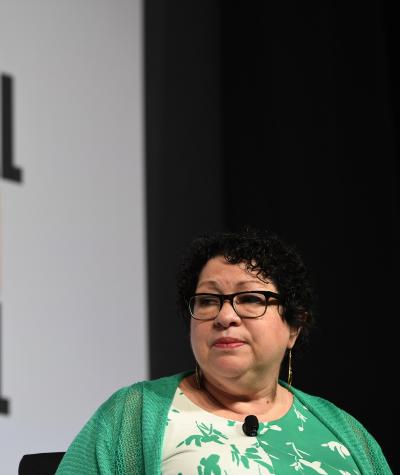For the third time this summer, the actions of a Supreme Court justice have shone a light on just how poor ethics enforcement is for the nine judges on our nation’s highest court – and made it clear just how desperately an internal enforcement mechanism is needed. A new round of reporting shows that Justice Sonia Sotomayor’s staff pushed universities to purchase the justice’s books before hosting her.
When asked about whether this was allowed, the Supreme Court said that “[c]hambers staff assist the justices in complying with judicial ethics guidance.” This is problematic for two reasons. First, this burdens the justices’ staff with the responsibility of holding their bosses ethically accountable. Second, the lack of any clear rules or guidelines makes it extremely difficult for the public to trust the Court’s justification for permitting this type of conduct.
If the Supreme Court employed ethics officials responsible for interpreting ethics rules, Justice Sotomayor’s staff would not have been put in the awkward position of determining whether they were allowed to ask public institutions to purchase more of the justice’s books. In both other branches of government, there are ethics officials on hand for consultation, and staff could consult a clear code of conduct by which they are required to abide, to inform them whether they make such requests on behalf of their boss.
In both the executive and legislative branches, officials are prohibited from using staff for their personal financial gain. These ethics rules would prohibit members of Congress and executive branch officials from having their staff ask anyone to purchase their books. There is no reason why the Supreme Court should lag behind the other branches in creating guardrails to ensure that the Court is acting in the public’s best interest.
Despite Senator Lindsey Graham’s claim that calling for a more transparent and ethical Supreme Court is simply “about destroying the conservative court;” and despite Senator Ted Cruz’s argument that expressing concern over Justice Clarence Thomas’s significant financial disclosure violations, is a “political smear job” because “they’re not looking at any other judges,” ethical lapses from any justice, regardless of where they fall on political spectrum, decrease public trust in our democratic institutions. This is an issue that rises above politics.
The reporting about Justice Sotomayor further shows that public trust in the Supreme Court as a whole is deteriorating - this is not about a problem for conservative justices alone.
As appointed officials who are given a lifetime appointment, Supreme Court justices must all be held to the highest ethical standards so that it is clear that they are acting on behalf of the people they have been appointed to serve, not themselves. Until the Court has a code of conduct and an ethics body to enforce it, there is nowhere for public trust to go but down.

